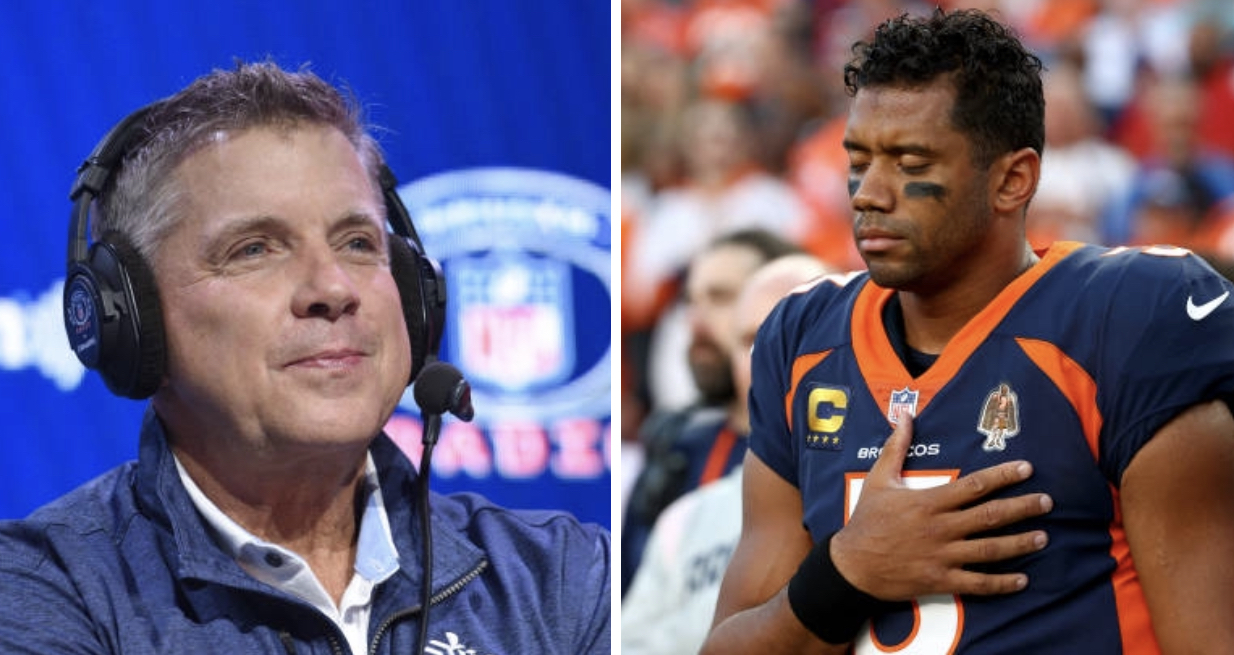Historically, an outspoken black man has been marginalized and frowned upon in the United States. The country would rather us be docile, quiet and simply happy to be living in “the greatest country in the world.” But athletic competition has long been a measure of black masculinity and worth in America. Since the days of heavyweight great Jack Johnson, the media gatekeepers have a long standing practice of targeting those they feel are stepping out of line.
The black males who become professional athletes don’t make it just because of their skills. The obstacle-ridden and often demoralizing situations they have to overcome creates a fighter's spirit that manifests itself in emotionally-driven, urgent, highly-confrontational and verbal expression.
The paths of some men are destined to cross, their fates forever intertwined before they even meet. History bears witness to this fact in many different instances; Ali and Frazier, Larry Bird and Magic Johnson, Wilt Chamberlain and Bill Russell. From the time they were born Denver Broncos wide receiver Demaryius Thomas and Seattle Seahawks cornerback Richard Sherman have been riding the freight train of fate to this crossroads in history that we call Super Bowl XLVIII.
From a distance, Sherman and Thomas appear to be unalike. But each has a steely inner strength that is indicative of the fighting spirit of the African American male in the United States. The stereotypes say we are weak, unintelligent, and lacking in discipline. But Sherman and Thomas are anything but that. Their demeanors are indeed opposite, but their resolve is the same. They are shining diamonds, mined from 400 years of "The Black Experience" in America.
Thomas was a first-round draft pick while Sherman was drafted in the fifth round. Demaryius has a calm, almost shy demeanor when the cameras are rolling, while Richard enjoys the bright lights and notoriety of an NFL athlete. Thomas is from the southeastern United States while Sherman is from the west coast. Richard Sherman had to be street smart in order to navigate the pitfalls of his hometown of Compton, CA and Thomas, who suffered through a rather transient childhood because of his mother and maternal grandmother’s incarcerations on drug charges, used football to focus his mind and lift himself out of circumstances that could have easily started a generational curse of crime and poverty.
According to the study, which was commissioned by DefenderNetwork.com, of the 7.3 million children in the United States who had at least one parent in jail 70 percent would follow that parent into the criminal justice system at some point in their lives. The study also reported that children of incarcerated parents are five times more likely to commit a crime than their peers. The key to preventing anything bad from getting out of hand, be it behavior or circumstances, is to catch it before things get out of hand. Unfortunately, many of these children don’t start getting attention until they get in trouble with the law.
Children of incarcerated parents also suffer from depression, post-traumatic stress syndrome, anxiety and feelings of abandonment. When Thomas was sent to live with his Uncle James and Aunt Shirley in Georgia, the young boy was placed in an environment that was rural and isolated. His Aunt and Uncle raised him on chores and church, but there were still pitfalls to avoid even out in the boondocks.
"I really didn't put myself around the wrong crowds," Thomas said during an interview with the Denver Post. "The only way you get in trouble around here is if you're dealing with drugs, because there's not much here in the country you can do besides drugs. You don't see kids with firearms or anything like that, just mostly drugs. There were a lot of people around here you could hang with that did drugs, so you had to pick the right crew."
But Thomas would beat the statistics and will himself into becoming an All-Pro wide receiver in the NFL. Wonder if there’s a study documenting how many kids from his beginnings make it to the Super Bowl? Probably not. Studies tend to highlight negative social ills. A chart showing the positive trajectory of these kids would be nice, but such charts are seldom made for the sake of being nice.
Sherman has traveled a long road to make it to the Super Bowl as well. In 2010, an FBI annual report of crime statistics ranked his hometown of Compton as the 8th most dangerous city in the United States. That designation is amazing considering the Los Angeles suburb had enjoyed a 53 percent decrease in homicides from five years prior.
But the Compton of today is not the Compton that a young "Sherm" grew up in. It’s not the same Compton that spawned gangster rappers NWA and the like. But a kinder, gentler Compton is still Compton nonetheless.
That's not to say nothing good comes from that infamous burg, but to ignore the obstacles that children there face is naive. Gangs are rampant, as is crime. It’s easy to fall in with the wrong crowd when becoming a part of the local crew is seen as a rite of passage and manhood. Individuals who do not join are often targeted and victimized. Some kids would prefer to just go along with it to avoid the possible repercussions. However, Sherman is on record as being a staunch believer in education as the ideal method of removing oneself from these impediments.
“As a student-athlete, I always believed academic excellence was just as important as excellence on the football field,” Sherman said in a press release for his charitable organization SWAG (Student With A Goal). “And even as a kid from Compton, I never doubted that I could turn obstacles into opportunity.”
However, even though Sherman is on record as being pro-education, his outspoken demeanor has made him a media target. America likes their athletes to sit down and shut up off the field. But Richard Sherman has never been that type of person. He has taken everyone from uninformed media talking heads like Skip Bayless to former best cornerback in the NFL Darrelle Revis, to San Francisco 49ers wide receiver Michael Crabtree to task for words spoken and slights deemed disrespectful. His infamous outburst after deflecting a would-be game winning pass from Colin Kaepernick to Crabtree in the NFC Championship game has sparked an irrelevant media feeding frenzy. But mass media has proven to be cannibalistic in nature in the modern age. In other words, they gladly build you up to tear you down.
Sherman has been called everything from a "dumbass" to a "thug." With a degree from Stanford University and a Masters degree in the works, if Sherm's lifestyle indicates thuggery, then the country is in good shape. The windfall of negativity has come on the heels of a Beats By Dre commercial in which Sherman is near his locker fielding questions from reporters. One of the individuals asks if he is a thug at which point he puts his headphones on and turns to his locker. The commercial fades to black from there. The ad was released days before the NFC Championship game, but it was obviously right on time.
The anonymity that the Internet provides allows opinionated cowards to spew whatever foulness they wish without fear of retribution. And though the Internet features a wealth of information on Sherman’s background and philanthropic dealings, these individuals didn’t waste time finding out the facts before rushing to negligent conclusions.
But Richard is used to it. One can only imagine the number of times he had to explain his scholarly aspirations to "real" thugs around the way as he religiously pursued his academic studies. Or how many times he had to defend his outspokenness and bravado while attending the mostly-white citadel of education that is Stanford University. While at Stanford he was shuttled between the wide receiver position and cornerback, which would ultimately affect his draft status. Now, as he prepares himself for the biggest game of his life, Sherman is once again at the center of criticism and instead of focusing on Thomas' odds-beating accomplishments, some publications choose to focus on the stereotypical narrative and the fact that he's a generational product of the penitentiary.
Thomas and Sherman find a common connection in the color of their skin and the challenging nature of their journeys, but the way they express their masculinity will play a large role in determining how the public perceives them. Sherman learned the hard way. Not because he’s a bad guy, not because he’s a criminal and not because he hasn't shown up in big games, but because he is not afraid to tell you how he feels.



